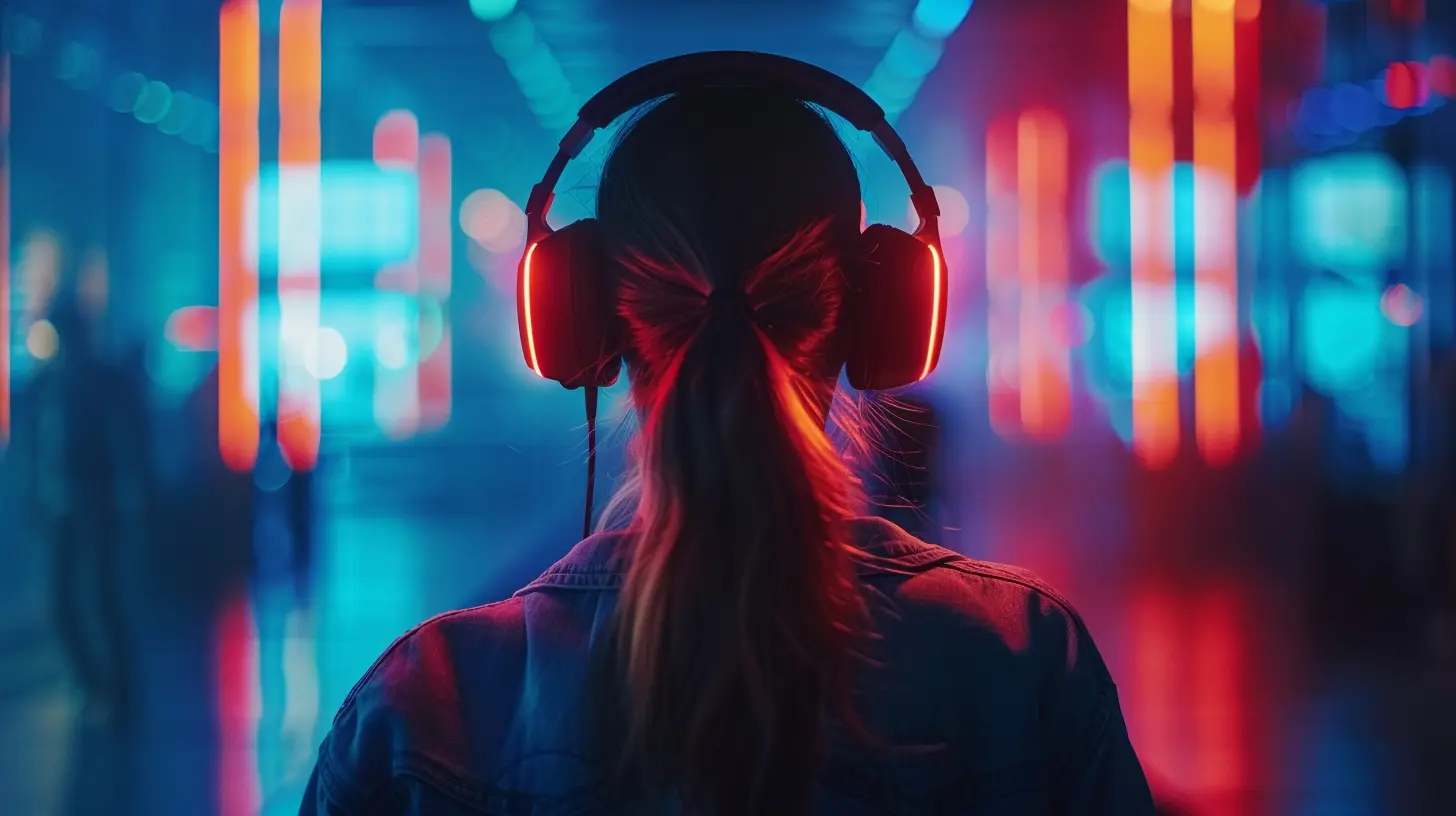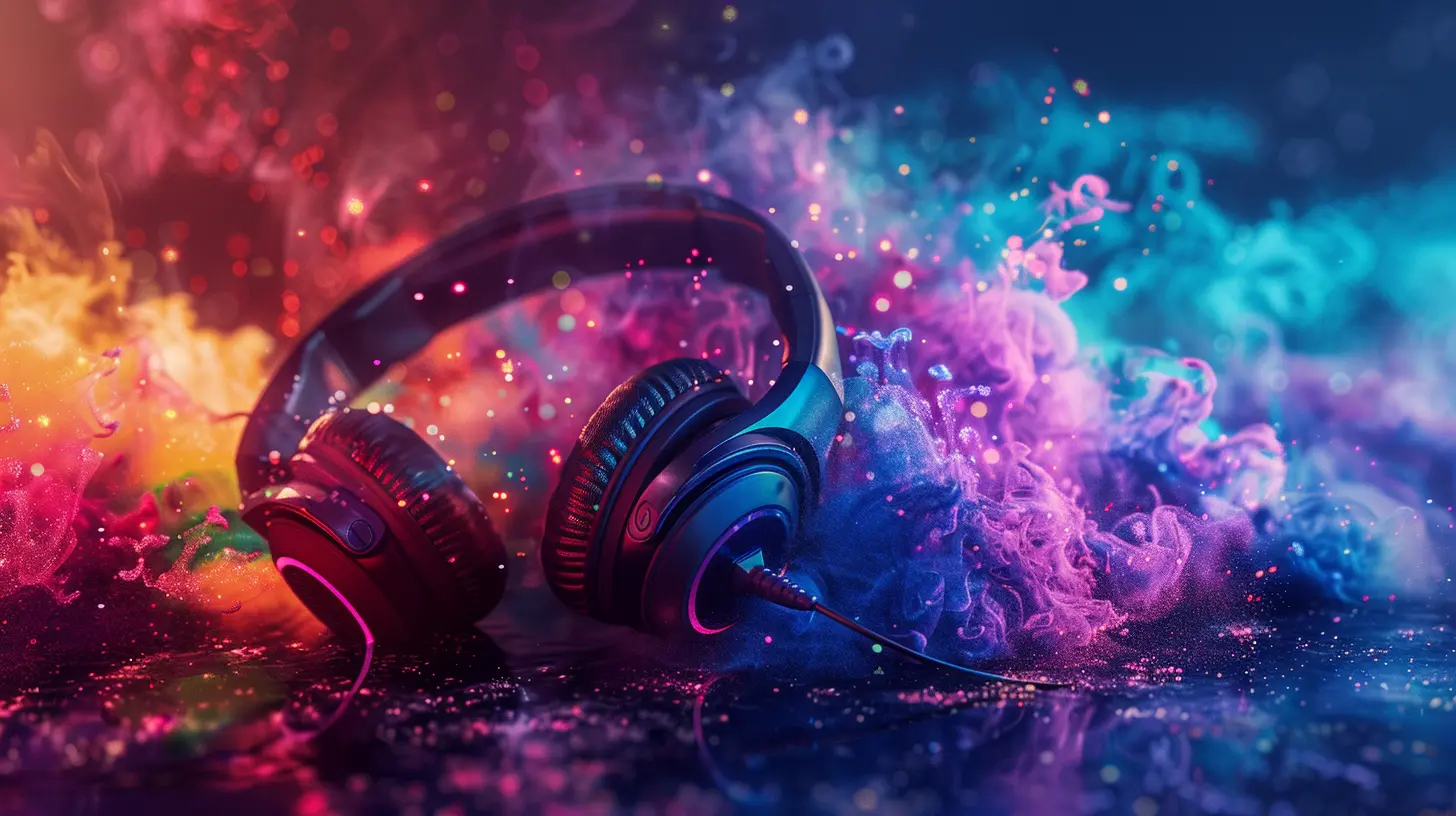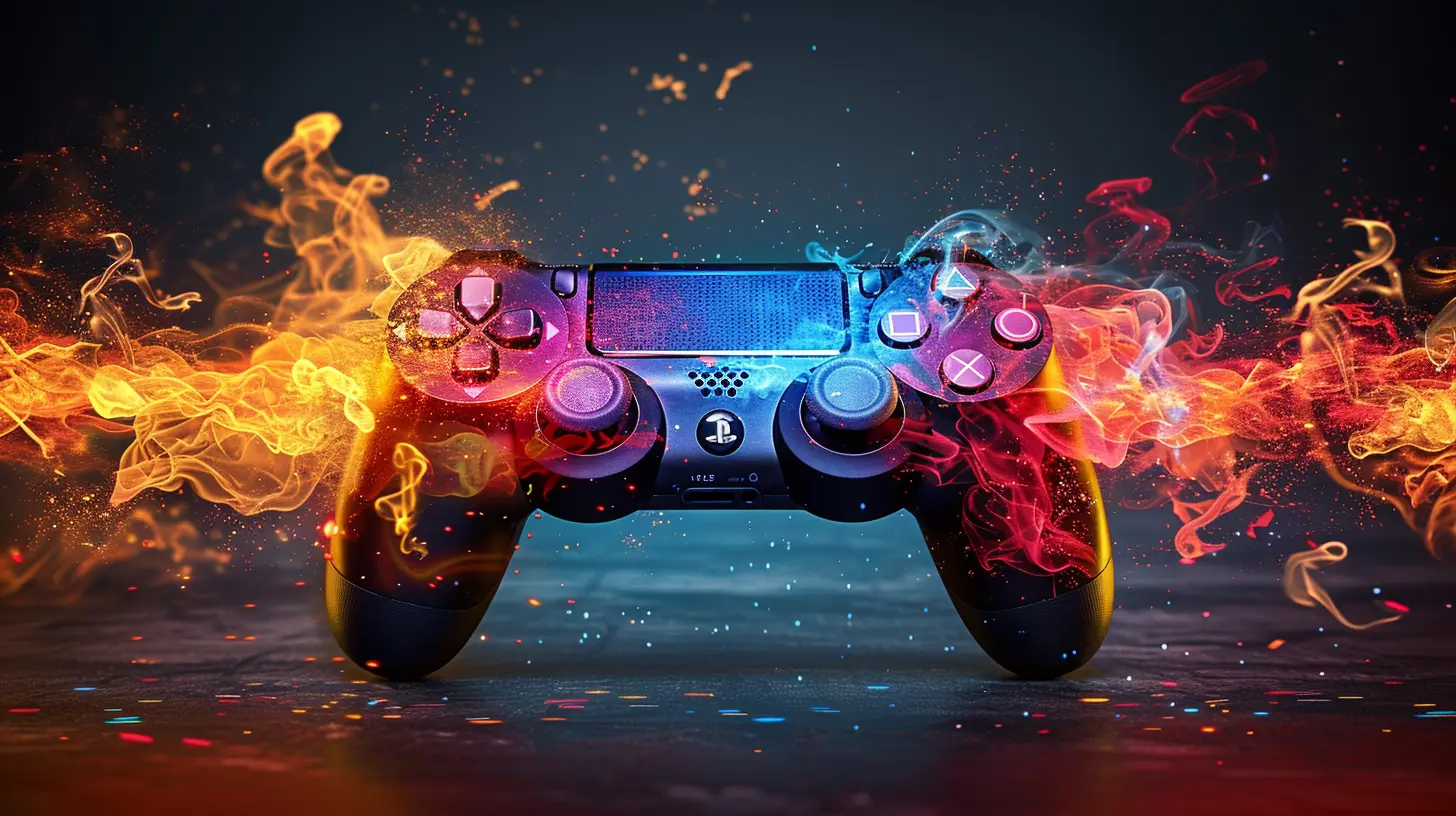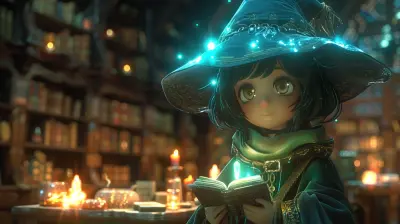How Music Shapes the Emotions of Gaming
20 June 2025
Let’s be honest—what’s a good game without a killer soundtrack? Imagine charging into battle in your favorite RPG without a symphony of violins screaming heroically in the background. Or, picture playing a horror game where you’re stalked by a terrifying monster, but instead of eerie, spine-tingling whispers, you’re met with… silence. Feels weird, right? That’s because music has this almost magical ability to completely transform your gaming experience. It doesn't just sit in the background—oh no—it’s a co-pilot taking you on an emotional rollercoaster.
But ever wonder how music does that? How a simple melody can make your heart race, or how a bass drop can make you feel like you’re the king of the world? Let’s dive into the quirky and fascinating ways music molds our emotions while gaming. Buckle up—this is going to be a wild ride!
The Role of Music in Setting the Scene
Let’s start here. Music is like the mood-setting MVP in video games. It’s the silent storyteller, nudging you to feel a certain way without using words. Developers carefully craft soundtracks not just as background noise but as dynamic mood-makers.Take for example The Legend of Zelda: Breath of the Wild. The game’s serene piano melodies elevate the feeling of exploration and complement the gorgeous open-world vibes. It’s an emotional pairing, like peanut butter and jelly—but y’know, with more adventure.
Then there’s the complete opposite: DOOM (2016). You’ve got heavy metal riffs that feel like a caffeine shot directly to your soul. The music screams at you, “Go! Pulverize those demons!” It’s aggressive, wild, and exactly what you need to keep your adrenaline levels sky-high.
Why It Works So Well
The secret sauce? Music taps into our brain’s emotional centers. Certain chords and rhythms spark specific feelings. A slow, melancholic tune? Cue the tears. A fast, upbeat rhythm? Time to get hyped! Game composers are like emotional puppeteers, pulling the strings with precision.
Emotions on Demand – Dynamic Soundtracks
Have you noticed how some games don’t just loop the same track but actually adjust the music depending on what you’re doing? That’s called a dynamic soundtrack, and it’s genius.Picture this: You’re roaming around in Red Dead Redemption 2, enjoying some chill cowboy vibes and strumming guitars. Suddenly, a pack of wolves attacks. BOOM—intense orchestral strings kick in, immediately putting you on edge. Music responds to your actions, making everything feel alive and immersive.
Dynamic soundtracks take immersion to the next level. They’re like your personal hype squad, reacting to whatever chaos you get yourself into. It’s like your playlist is stalking you—but in a totally cool way.
Emotional Genres: The Music-Gaming Love Affair
Different genres of music evoke different vibes, and game developers pick their soundtracks carefully to match their gaming genres. Let’s break it down:1. Horror Games: Creepy and Unsettling
Horror games know how to mess with your head. Ever played Silent Hill? The soundtrack is a mix of industrial noises, eerie whispers, and distorted melodies. It’s like the music itself is haunted. The unsettling tracks heighten your anxiety, making you jump at every shadow.Fun fact: Horror games often use infrasound—low-frequency noises that are so subtle, you don’t consciously hear them. But guess what? Your brain does, and it freaks out. Horror soundtracks are basically sneaky scare ninjas.
2. Action Games: Adrenaline-Pumping Madness
Action games bring the heat with loud, fast-paced tracks. Whether it’s the intense rock of DOOM Eternal or the cinematic orchestras in Call of Duty, the goal is the same: to pump up your adrenaline and scream “Go! Go! Go!” in your ears.Music with a higher tempo literally makes your heart beat faster. It’s like musical caffeine, keeping you wired and in the zone. Who needs coffee when you’ve got a battle theme kicking in?
3. Relaxing Indie Games: Chill and Cozy
On the flip side, indie games like Stardew Valley or Journey often feature soothing, simple melodies. These tracks feel like a warm hug—perfect for games where you just vibe, farm, or explore beautiful landscapes at your own pace.
Nostalgia: The Secret Weapon of Retro Game Music
Anyone else get misty-eyed when they hear the Mario theme or the opening notes of Pokémon Red/Blue? That’s nostalgia smacking you in the face like an old friend. Retro games nailed this by using catchy, looping tunes from 8-bit and 16-bit soundchips.These “earworm” tracks stick with you because they’re simple and repetitive, branded into your brain forever. Plus, they remind you of a simpler time—like when saving Princess Peach was your biggest worry.
Music and Player Psychology: Manipulating Your Mind (In A Good Way)
Game designers are basically musical psychologists. They use music to manipulate your emotions, often without you realizing it. Crazy, right? Here’s how it works:1. Creating Tension and Release
Ever notice how games build suspense by playing soft, creepy music—then BAM! The music explodes during a boss fight? That’s intentional. The tension makes the release so much sweeter (or scarier). It’s like stretching a rubber band and letting it snap. You feel that impact.2. Rewarding Progress
Certain games reward you with triumphant music when you win or achieve something big. Think of the victory theme in Final Fantasy. It’s a short, celebratory tune, but man, doesn’t it feel great? That positive reinforcement keeps you coming back for more.Music as the Unsung Hero of Storytelling
Here’s a hot take: A game’s music tells the story just as much as the dialogue and visuals do. Sometimes even more! Music captures emotions that words can’t. It’s the silent narrator, giving you all the feels whether you realize it or not.Take The Last of Us, for example. Its haunting soundtrack, mostly acoustic guitar, perfectly mirrors the game’s themes of loss, survival, and tiny glimmers of hope. The music alone can make you cry—yes, even you tough guys pretending to be stone-hearted.
Personal Connection: Why Music Sticks With Us
Have you ever heard a game track years later and felt all the emotions come flooding back? That’s the beauty of a great gaming soundtrack—it becomes personal. Whether it’s tied to a specific memory (like beating a hard level) or just the vibe of the game, music anchors those emotions deep in your brain.For me, hearing the Elder Scrolls V: Skyrim theme instantly transports me back to hours spent shouting at dragons and stealing cheese wheels. It’s nostalgic, epic, and oddly comforting all at once. What’s your “instant nostalgia” track? I bet you can think of one.
Music Mods: Gamers Taking Control
Some gamers take things a step further with music mods. Don’t like the boss music in Dark Souls? Change it to “Stayin’ Alive” by the Bee Gees! (Yes, people actually do this.) While it’s goofy, it says a lot about how much we care about music in gaming. It’s like customizing your own soundtrack to fit your vibe.The Future of Gaming Music: What’s Next?
Gaming music is only getting better. With advancements in AI and interactive technology, soundtracks are becoming more responsive and personalized. Imagine games where the music matches your specific emotions in real-time, like it’s reading your mind. Creepy? Maybe. Cool? Absolutely.Final Thoughts: Music as the Heartbeat of Gaming
At the end of the day, music isn’t just background noise in gaming—it’s the emotional heartbeat. It makes us laugh, cry, scream, and cheer. It pulls us into the story, amps up the action, and etches unforgettable memories into our brains. So the next time you’re gaming, take a moment to appreciate the music. After all, where would your favorite games be without it?all images in this post were generated using AI tools
Category:
Original SoundtracksAuthor:

Audrey McGhee
Discussion
rate this article
2 comments
Kinsley Newton
Music is the heartbeat of gaming, expertly guiding our emotions and enhancing immersion. It transforms ordinary moments into unforgettable experiences, heightening tension and evoking nostalgia. Developers must harness this power, as a game's soundtrack can elevate storytelling to unparalleled heights.
September 16, 2025 at 4:57 PM

Audrey McGhee
Absolutely! Music profoundly influences our emotional connection to games, enhancing immersion and storytelling in ways that leave lasting impressions on players.
Eliza Flores
This article beautifully highlights the profound impact of music on gaming emotions. It’s fascinating to see how soundscapes enhance our connection to the narrative and gameplay. Thank you!
June 25, 2025 at 3:32 AM

Audrey McGhee
Thank you for your thoughtful comment! I'm glad you found the article insightful—it’s amazing how music truly enhances our gaming experiences.


